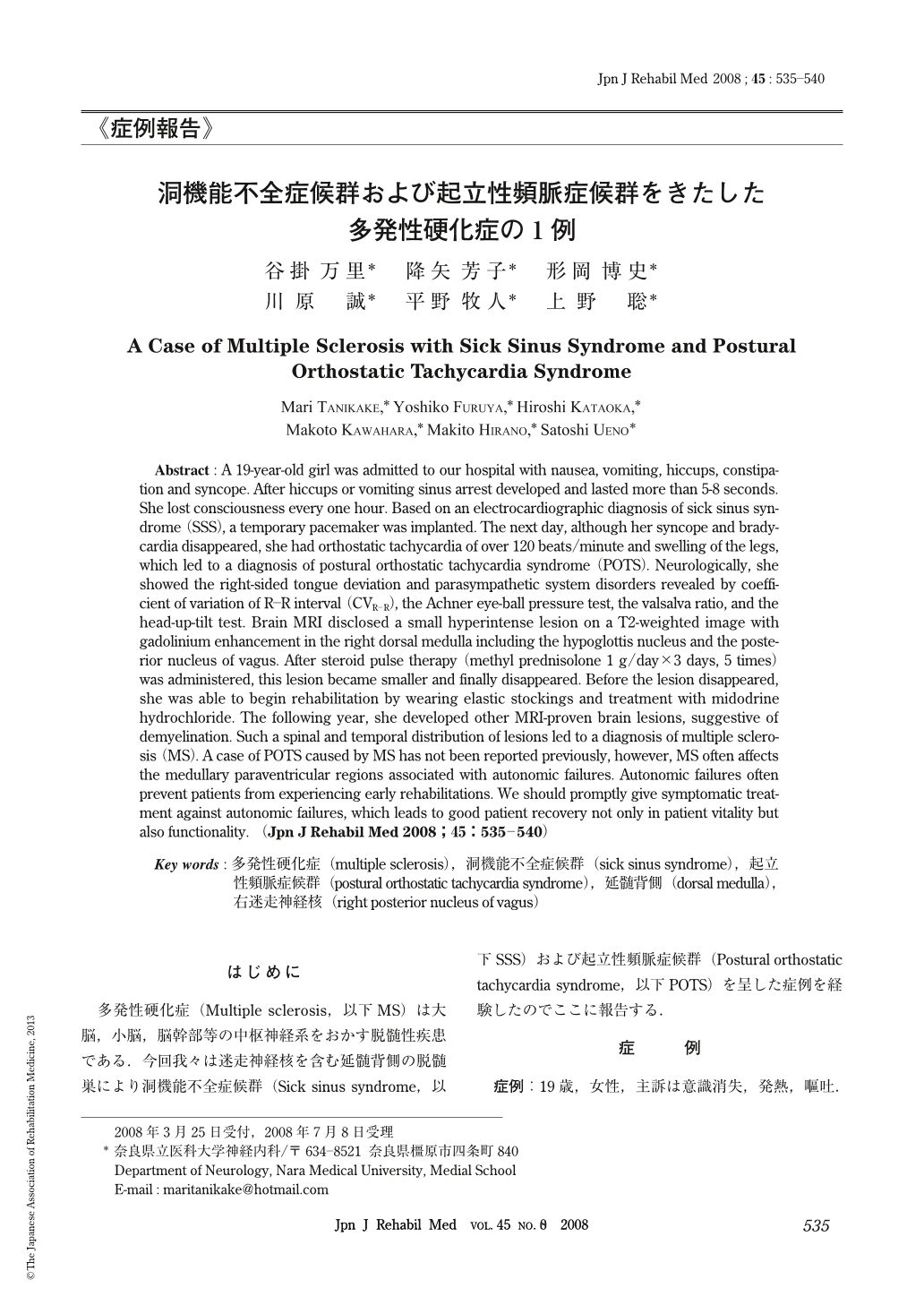Japanese
English
- 販売していません
- Abstract 文献概要
- 1ページ目 Look Inside
- 参考文献 Reference
はじめに
多発性硬化症(Multiple sclerosis,以下MS)は大脳,小脳,脳幹部等の中枢神経系をおかす脱髄性疾患である.今回我々は迷走神経核を含む延髄背側の脱髄巣により洞機能不全症候群(Sick sinus syndrome,以下SSS)および起立性頻脈症候群(Postural orthostatic tachycardia syndrome,以下POTS)を呈した症例を経験したのでここに報告する.
Abstract : A 19-year-old girl was admitted to our hospital with nausea, vomiting, hiccups, constipation and syncope. After hiccups or vomiting sinus arrest developed and lasted more than 5-8 seconds. She lost consciousness every one hour. Based on an electrocardiographic diagnosis of sick sinus syndrome (SSS), a temporary pacemaker was implanted. The next day, although her syncope and bradycardia disappeared, she had orthostatic tachycardia of over 120 beats/minute and swelling of the legs, which led to a diagnosis of postural orthostatic tachycardia syndrome (POTS). Neurologically, she showed the right-sided tongue deviation and parasympathetic system disorders revealed by coefficient of variation of R.R interval (CVR-R), the Achner eye-ball pressure test, the valsalva ratio, and the head-up-tilt test. Brain MRI disclosed a small hyperintense lesion on a T2-weighted image with gadolinium enhancement in the right dorsal medulla including the hypoglottis nucleus and the posterior nucleus of vagus. After steroid pulse therapy (methyl prednisolone 1 g/day×3 days, 5 times) was administered, this lesion became smaller and finally disappeared. Before the lesion disappeared, she was able to begin rehabilitation by wearing elastic stockings and treatment with midodrine hydrochloride. The following year, she developed other MRI-proven brain lesions, suggestive of demyelination. Such a spinal and temporal distribution of lesions led to a diagnosis of multiple sclerosis (MS). A case of POTS caused by MS has not been reported previously, however, MS often affects the medullary paraventricular regions associated with autonomic failures. Autonomic failures often prevent patients from experiencing early rehabilitations. We should promptly give symptomatic treatment against autonomic failures, which leads to good patient recovery not only in patient vitality but also functionality.

Copyright © 2008, The Japanese Association of Rehabilitation Medicine. All rights reserved.


